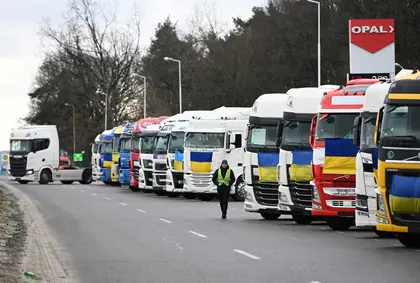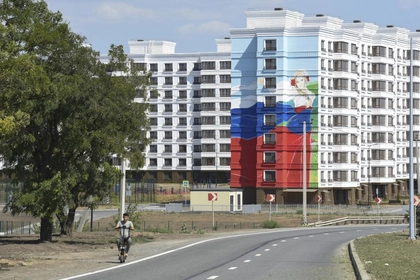Closing borders with Ukraine is a "no-go" for both sides - Kyiv and Warsaw - and could potentially "damage Polish economy in the same amount as for Ukraine and even worse," Taras Kachka, Ukraine's deputy economy minister, said in an interview with AFP in Brussels, stressing the need for dialogue.
"We are in a common situation, and (dialogue) is the best way to resolve this problem by unifying our efforts. Because, after all, Ukraine is like a twin sister of EU agriculture," he added.
JOIN US ON TELEGRAM
Follow our coverage of the war on the @Kyivpost_official.
Ukraine, once dubbed "Europe's breadbasket", has had its traditional export routes through the Black Sea largely blocked by Russia's two-year-old invasion. Therefore, now, Kyiv sends goods through the EU, with special trade deals.
However, farmers in countries like Poland, serving as primary entry points, argue that these imports are driving down prices, contributing to the unrest witnessed across Europe.
Polish farmers have resorted to blocking border crossings with Ukraine in protest, prompting discussions within the Polish government about potential border closures and a halt to trade with Ukraine.
Kachka, however, warns that closing the border would hurt both Ukraine and Poland.
"It's bad for both countries, especially since Poland acts as a hub for moving goods around," the deputy minister warns.
While Kachka denies claims that Ukraine is flooding the EU with cheap food, he admits there's more demand for Ukrainian wheat, especially in Spain.

IMF Approves $1.1 Billion Loan Disbursement to Ukraine Before Trump Inauguration
Kachka hopes that talking will solve the problem. He also pointed out the tough conditions Ukrainian farmers face, like the risk of Russian attacks and not enough storage space.
Polish farmers, on the other hand, can store their food for a long time, giving them an advantage.
EU member states have agreed to extend Ukraine's tariff-free transit access to the bloc for another year, starting from June.
However, a decision by a European Parliament committee on Thursday will determine the endorsement of this extension.
The European Commission has proposed implementing "safeguards" during this period to prevent Ukrainian imports from negatively impacting local farmers.
These measures include using an "emergency brake" for sensitive products like poultry, eggs, and sugar to prevent excessive imports beyond the average volumes of 2022 and 2023.
You can also highlight the text and press Ctrl + Enter






